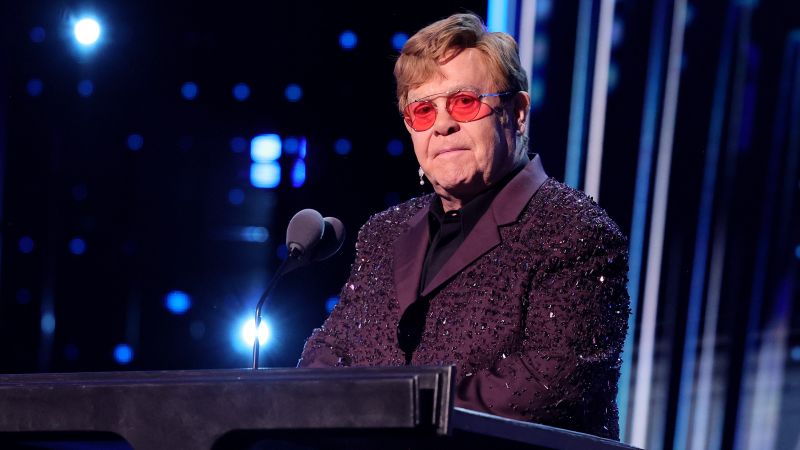Elton John, one of the most iconic musical figures of our time, has made headlines once again, this time for his outspoken views on the legalization of marijuana. In a candid interview published by Time magazine, as part of their Icon of the Year feature, John articulated his concerns regarding cannabis use and its implications in regions like the United States and Canada, where marijuana has been legalized for recreational use. His stance underscores the complexities surrounding the debate on drug legalization, drawing attention from fans and critics alike.
In his reflections, John expressed a firm belief that marijuana is indeed addictive and poses a gateway to the use of other illegal substances. “I maintain that it’s addictive,” he stated emphatically during the interview. This sentiment is rooted in his personal experience, having navigated the trials and tribulations of addiction himself. His statement reflects a perspective that views the normalization of marijuana as a concerning societal shift. He reminisced about his past when he was under the influence, remarking, “When you’re stoned—and I’ve been stoned—you don’t think normally.” This suggests that his apprehensions stem from a profound understanding of substance abuse, rooted in firsthand experience.
Moreover, John categorically declared the legalization of marijuana as “one of the greatest mistakes of all time.” Such bold assertions are indicative of his intense concern for public health, particularly concerning the youth and vulnerable populations. His views may also be influenced by his long-standing sobriety, which has fostered a realignment of his values and priorities. He shared that he has been sober for many years, emphasizing the importance of maintaining a clear mind in tackling life’s challenges.
Additionally, John has played a critical role as a supporter and mentor to several high-profile artists struggling with addiction, including Eminem and Robbie Williams. In the article, Time highlighted his influence as a sponsor, indicating how he has channeled his life experiences into helping others avoid the pitfalls he encountered. However, not every story ends on a positive note; John expressed regret over not being able to assist his close friend George Michael, who tragically succumbed to heart and liver disease in 2016 after battling substance abuse. John’s reflection on this part of his life shows the emotional toll it can take to confront these harsh realities with friends and loved ones.
Elton John candidly described the difficulty in confronting someone about their addiction, saying, “It’s tough to tell someone that they’re being an a**hole, and it’s tough to hear.” This admission signifies the complexity of interpersonal relationships when addiction is involved and speaks to the deep empathy that comes with having walked a similar path. John acknowledges his own shortcomings, admitting at times he, too, found himself in a place of denial regarding his behavior and choices.
The struggles reflected in John’s past were not lost on his longtime collaborator, Bernie Taupin. In the same feature, Taupin provided insight into the toll John’s addiction took on their creative partnership. He admitted, “I was terrified for him. It was absolutely horrible.” Their collaborative work during John’s darkest periods suffered, indicating how personal struggles can be deeply intertwined with professional creativity. It wasn’t until John embraced sobriety that Taupin felt empowered to fully invest in their artistic endeavors again. This illustrates a powerful narrative about recovery and the redemptive potential of confronting one’s demons.
Through his poignant reflections, Elton John sheds light on the notable challenges of addiction, the societal implications of drug legalization, and the often difficult road toward recovery. His experiences not only serve as a cautionary tale but also underline the ongoing need for compassion, understanding, and open dialogue in navigating the complexities of addiction and mental health.



